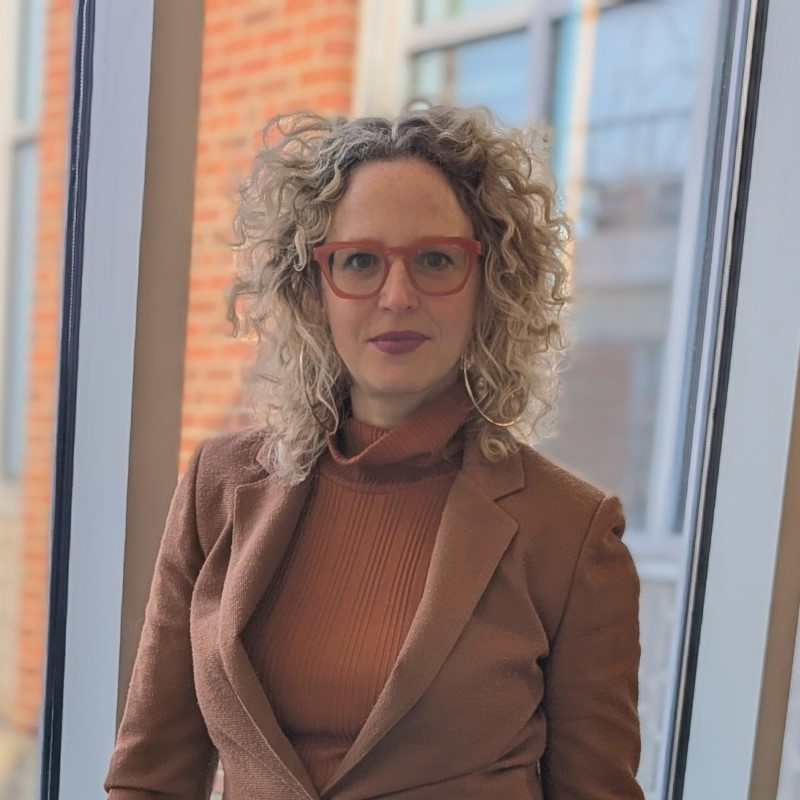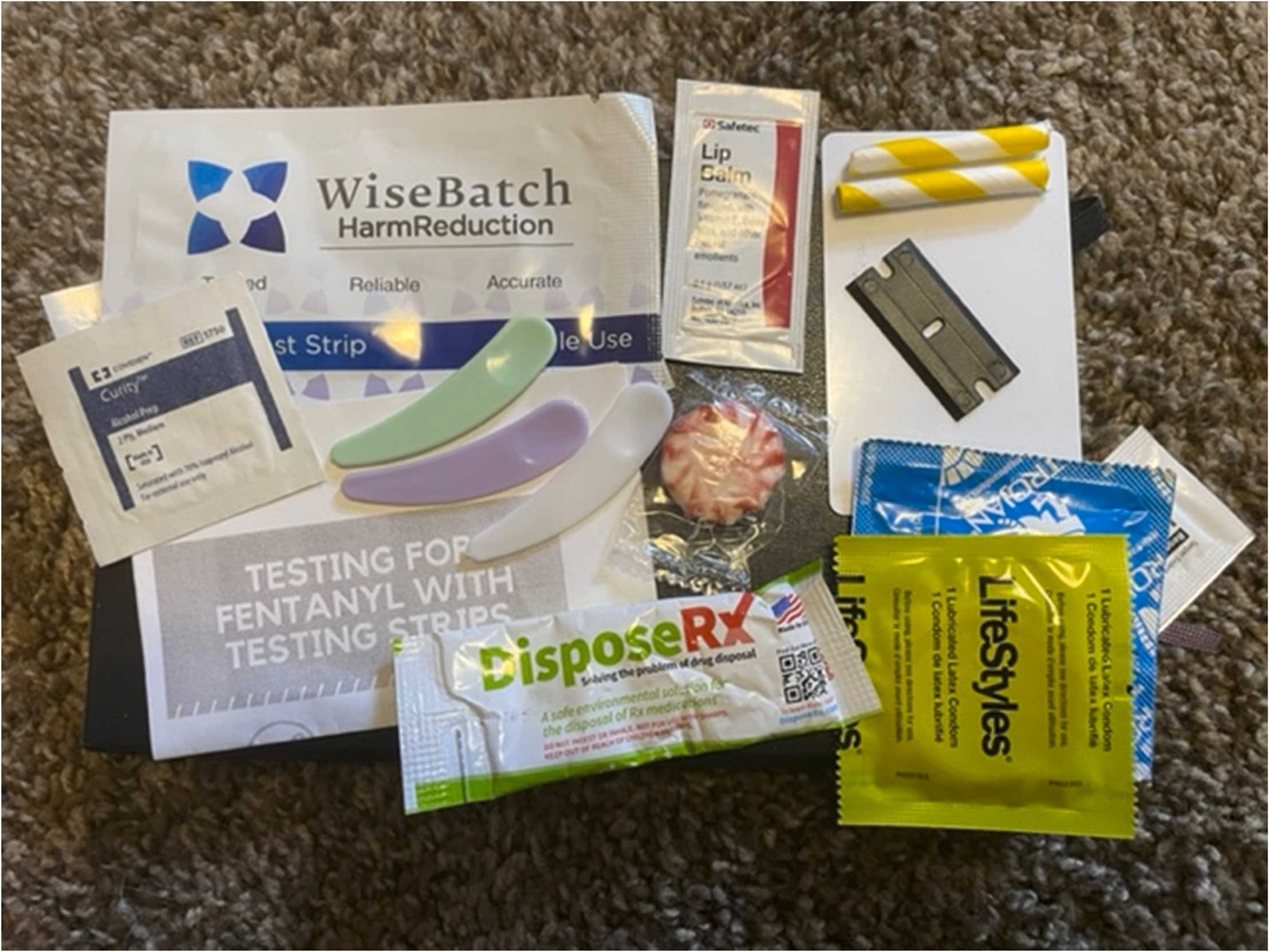Challenging narratives: How drug suppliers can be (and are) harm reductionists

Bethany Hedden-Clayton, Associate Director of Training and Program Development for the Center for Behavioral Health and Justice (CBHJ) at the Wayne State University School of Social Work, is driving important conversations with her latest publication. Known for her creative approach to research and her prolific writing on drug policy, harm reduction, and health disparities, Hedden-Clayton draws on her background in theater, anthropology, and social work to bring unique perspectives to her work. She is the lead author of “If everyone knew about this, how many lives could we save?”: Do drug suppliers have a role in reducing overdose risk? The article, published in Drug and Alcohol Dependence Reports: Volume 12 (June 2024) challenges longstanding narratives about people who supply drugs, highlighting their potential role as harm reductionists, a truism for many people who use drugs.
“This paper highlights the value, knowledge, and unique positionality of people who supply drugs as important, critical, and worthy interlocutors to mitigating harms towards people who use drugs,” said Hedden-Clayton. “This article aims to chip away at a monolithic narrative around suppliers that may cast them as criminal, evil, or uncaring and demonstrates that such a narrative needs to be questioned and is often not true.”
That aim—to emphasize the role of people who supply drugs as critical harm reduction partners—was a central theme that galvanized the co-authors to make sure this paper was documented into the scientific record. Hedden-Clayton played a key role in the research, from designing interview guides and interviewing participants to analyzing data and leading the manuscript development. Her collaboration with co-authors Jes Cochran, Jennifer J. Carroll, Alex H. Kral, Grant Victor, Bradley Ray, and Wayne State University School of Social Work Professor Erin Comartin, was crucial in shaping the paper and presenting its findings at major conferences including the College on Problems of Drug Dependence and the International Society for the Study of Drug Policy.
“This paper would not have been possible without Jes Cochran, a nationally renowned harm reductionist, who was essential to realizing study recruitment, analysis, and the community-based harm reduction navigator (CHRN) training itself,” Hedden-Clayton said. “Cochran developed and delivered the CHRN which the research team came to learn about during participant interviews.”

The paper underscores a critical tension in drug policy—one between harm reduction and punitive approaches that criminalize the very strategies aimed at saving lives. This research connects to broader policy debates by highlighting how criminal drug policy exacerbates community overdose risk and may make additionally precarious the potential role of people who supply drugs—some of whom implement harm reduction strategies. As Hedden-Clayton explains, “If public health leaders and policymakers truly want to embrace harm reduction, that means not only implementing harm reduction strategies but also de-implementing punitive drug policies that restrict and criminalize this work.” The paper challenges policymakers to move beyond singular and limited views of people who supply drugs—who may or may not also consume drugs urging them to create conditions where harm reduction efforts are not just permitted but lead by people who sell, use, or share drugs.
Art and advocacy
Hedden-Clayton joined the CBHJ as a graduate research assistant in 2018 and most recently served as the federal grants manager before being promoted to her current role as an associate director. Hedden-Clayton earned a master of social work degree from the University of Michigan and is currently a candidate in the joint Social Work and Anthropology (SWAN) Ph.D. program.
Hedden-Clayton received her undergraduate degree in theater from Wayne State and participated in the prestigious Summer Intensive Program at the Moscow Art Theatre School as a student. Her background in theater, including a range of productions such as devised theater, puppetry and mime-work, musicals, and living room dramas, informs her writing and research process. Those experiences taught her the importance of persistence, continuous practice, and knowing when to leave something on the cutting-room floor.
"Theater taught me that you’re likely to get more 'no's' than 'yeses,' but rejection is still valuable—it’s information. Writing is the same; it’s a practice you constantly hone, like rehearsing for a performance,” she said. “And just as in theater, sometimes you have to cut something you love to create a clearer, stronger, final product."
About the Center for Behavioral Health and Justice
The Center for Behavioral Health and Justice at the Wayne State University School of Social Work delivers actionable data, person‐centered research and evaluation, and collaborative technical assistance at the behavioral health/criminal legal intersection to empower community partners to adopt high‐impact care solutions. We envision a society that prevents, deflects, and diverts people with behavioral health concerns from the criminal legal continuum to appropriate care settings as a means to optimize individual and community wellbeing.
Written by Sarah Freeman, edited by Jessica Best